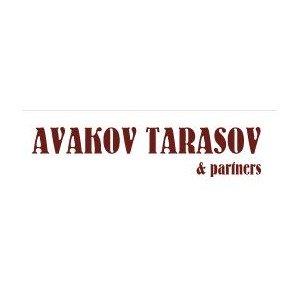Best Employment Benefits & Executive Compensation Lawyers in Russia
Share your needs with us, get contacted by law firms.
Free. Takes 2 min.
Or refine your search by selecting a city:
List of the best lawyers in Russia
About Employment Benefits & Executive Compensation Law in Russia
Employment Benefits and Executive Compensation law in Russia covers the various forms of benefits and compensation that employees, particularly executives, may be entitled to, outside of their base salary. It includes health benefits, retirement plans, bonuses, stock options, and severance arrangements. The legal framework governing these benefits ensures fairness and compliance within employment relationships, providing mechanisms for resolving disputes and overseeing the implementation of benefit packages by employers.
Why You May Need a Lawyer
Legal advice may be required in a variety of situations related to Employment Benefits and Executive Compensation in Russia. This includes negotiating compensation packages, addressing disputes over benefits, understanding tax implications, ensuring compliance with employment laws, handling executive terminations and severance, and navigating cross-border employment issues. Lawyers specializing in this field can offer invaluable guidance in drafting and reviewing contracts to protect both employer and employee interests.
Local Laws Overview
Russian employment law is governed by the Labor Code, which outlines various mandatory and discretionary benefits for employees. Key aspects include obligatory pension contributions, health insurance, maternity and parental leaves, and overtime compensation. For executive compensation, particular attention must be paid to contractual clarity regarding bonuses, stock options, and severance pay. Russian laws also regulate the tax treatment of benefits, necessitating careful structuring of compensation packages to optimize tax efficiency and compliance.
Frequently Asked Questions
What are mandatory employee benefits in Russia?
Mandatory benefits include contributions to the state pension system, health insurance, paid maternity and parental leave, and compensation for overtime work.
How is executive compensation typically structured?
Executive compensation often combines fixed salaries, performance bonuses, stock options, and various allowances. It should align with both company policy and Russian regulations.
Are there any restrictions on severance pay?
Severance pay in Russia is generally regulated under the Labor Code, with specific provisions for executive-level employees that may include extended severance packages.
How do employment contracts work in Russia?
Employment contracts in Russia must comply with the Labor Code, clearly outlining roles, responsibilities, compensation, and benefits. They require careful drafting to ensure compliance and protect the interests of both parties.
What taxes apply to benefits and compensations?
Both income tax and several social contributions apply to employment benefits and compensations in Russia. The structuring of these elements can impact the overall tax liability.
Can benefits be provided in forms other than cash?
Yes, non-cash benefits such as housing, company cars, and stock options are common, but they must be clearly detailed in employment agreements to ensure compliance and transparency.
What happens in case of a dispute over benefits?
Disputes can be resolved through negotiation, mediation, or litigation. Legal advice is often essential in navigating these processes effectively.
Is executive compensation subject to corporate governance rules?
Yes, executive compensation is subject to corporate governance standards that emphasize fairness, transparency, and alignment with the company’s long-term goals.
How can an expat receive benefits and compensation in Russia?
Expat employees in Russia must comply with local employment laws but may also negotiate special terms within their contracts, subject to tax and legal considerations both in Russia and their home countries.
What are deferred compensation plans?
Deferred compensation plans allow earnings to be paid out at a later time, often used for pension or retirement benefit plans and must comply with specific regulations.
Additional Resources
For more information, the following resources may be of assistance: Russian Federation Ministry of Labor and Social Protection for policy updates, the Federal Tax Service for tax information, and the Russian Supreme Court for legal rulings related to employment disputes. Additionally, local law firms specializing in employment law can provide tailored advice.
Next Steps
If you need legal assistance regarding Employment Benefits and Executive Compensation in Russia, it is advisable to consult a qualified employment lawyer who can help navigate the complexities of the legal framework. Preparing a detailed account of your situation, reviewing your employment contracts, and understanding your rights and obligations will be beneficial as you seek legal counsel. Additionally, professional organizations specializing in HR and legal affairs can offer further guidance and support.
Lawzana helps you find the best lawyers and law firms in Russia through a curated and pre-screened list of qualified legal professionals. Our platform offers rankings and detailed profiles of attorneys and law firms, allowing you to compare based on practice areas, including Employment Benefits & Executive Compensation, experience, and client feedback.
Each profile includes a description of the firm's areas of practice, client reviews, team members and partners, year of establishment, spoken languages, office locations, contact information, social media presence, and any published articles or resources. Most firms on our platform speak English and are experienced in both local and international legal matters.
Get a quote from top-rated law firms in Russia — quickly, securely, and without unnecessary hassle.
Disclaimer:
The information provided on this page is for general informational purposes only and does not constitute legal advice. While we strive to ensure the accuracy and relevance of the content, legal information may change over time, and interpretations of the law can vary. You should always consult with a qualified legal professional for advice specific to your situation.
We disclaim all liability for actions taken or not taken based on the content of this page. If you believe any information is incorrect or outdated, please contact us, and we will review and update it where appropriate.
Browse employment benefits & executive compensation law firms by city in Russia
Refine your search by selecting a city.
















